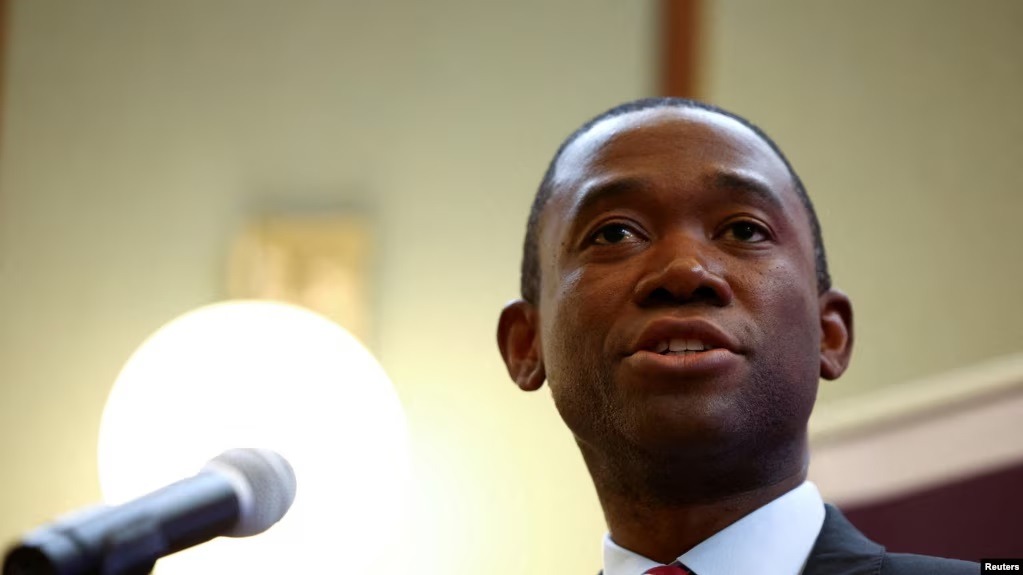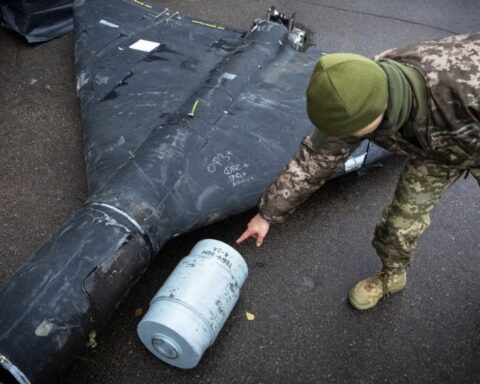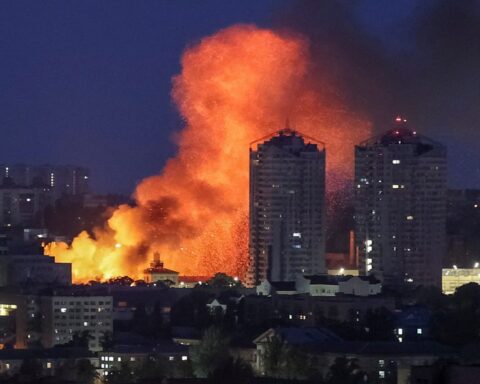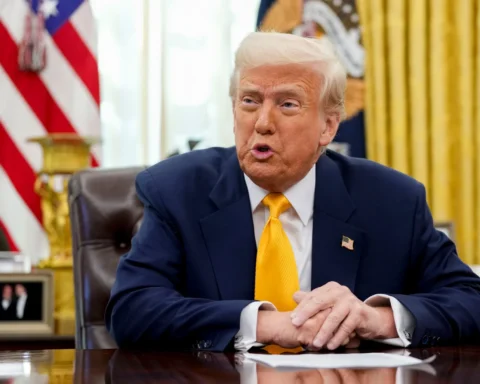The Ukrainian government continues to find Western-made components in Russian missiles and drones retrieved from the battlefield in Ukraine.
Thank you for reading this post, don't forget to subscribe!Many of the components came through China, Ukrainian President Volodymyr Zelenskyy said Sunday at the Shangri-La Dialogue in Singapore.
“Russian intelligence services are going through third countries” to purchase American and European goods for its military complex, and Putin is rapidly turning Russia into a war economy, Deputy Treasury Secretary Wally Adeyemo told VOA’s Ukraine Service on Monday.
He said he believes U.S. and European companies should take action to limit supplies of dual-use goods to Russia from China and offered Chinese companies and entities a choice: either they have access to Western economies or continue supplying dual-use goods to Russia.
Adeyemo, who has just returned from a visit to Ukraine and Germany, told VOA about the messages he heard from Kyiv and his discussions with allies on joint actions to disrupt the flow of components from the West for Russia’s war machine.
The following transcript has been edited for brevity and clarity.
What are the main messages you heard from Ukrainians during your trip to Ukraine?
Wally Adeyemo, U.S. deputy secretary of the Treasury: I heard a gratitude from Ukrainians for the support the United States has provided, and I heard a commitment from them to continue to fight for their freedom and for the democratic values that we all share. It was a good opportunity for me to see my counterparts, but also to see Ukrainian people and talk to them about the fact that [the] United States stands behind them financially. We’re going to continue to provide them with the weapons they need to defend themselves, and we’re going to do everything we can to make sure that they win this war.
You recently said that Russia is turning into a full-fledged war economy. What does that mean for Ukraine and its allies?
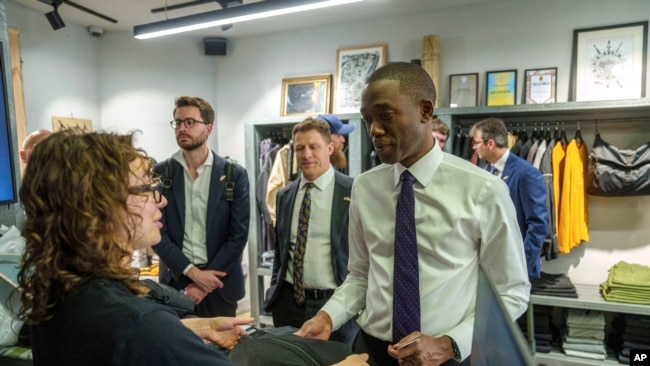
Adeyemo: In an article that was published [Sunday] in the FT [Financial Times] and a speech that I gave in Germany, I talked about the fact that today, [Russian President] Vladimir Putin has decided to invest in guns, not butter. To invest in building out his military and not in the Russian people. And while this is going to be devastating to the Russian people over time, it does mean that he’s going to be able to produce weapons unless we take action.
And this is what we need to do … stop Russia from getting the goods they need to build the weapons they want for this war. And what that means is using our sanctions and export controls to go after companies and individuals who are providing the Russian military industrial complex with the goods they need to build their missiles, to build their tanks and build their other weapons.
Do you think European countries are ready to pose the choice to China — work with their economies or supply dual-use goods to Russia?
Adeyemo: We had a conversation about how we do that. And one of the most important things we can do is make sure that the United States, Europe and all of Ukraine’s allies are sending the same message to China that it is unacceptable for them to power Russia’s war machine, and that ultimately the companies and individuals in China who are selling these goods to Russia have a choice: they can do business with our alliance, which represents 50% of the global economy, or they can continue to do business with Russia’s military complex. They can’t do both. And my view is that our allies, including Europe, need to be committed to taking action if our words don’t work to convince the Chinese to stop doing this behavior.
Are European countries receptive to your messages?
Adeyemo: My view is that our European allies and partners are committed to doing whatever it takes to make sure Russia doesn’t have access to these goods. And I expect that over the coming weeks and months, we will act together to make sure that we both provide Ukraine with the weapons [it needs] and the money [it needs] to continue to defend [itself].
The G7 Summit will be held June 13 to 15. Do you think the countries will agree to issue a loan to Ukraine using frozen assets?
Adeyemo: Just a few weeks ago, [U.S. Treasury] Secretary [Janet] Yellen and the G7 finance ministers met … [and] talked through a number of options that will allow us to make sure that Ukraine has access to the money [it needs] to not only invest in the economy, but to invest in defense. And my expectation is that as we get to the leaders meeting, those leaders are going to endorse some of those options … that ultimately, Ukraine will have the resources to defend itself. And part of those resources should … come from unlocking the value of Russian sovereign assets.
How optimistic are you that the actual announcement will be made at the summit?
Adeyemo: Ultimately, our leaders have got to make a decision, and I will defer to them. … The reason that I’m confident that they’re going to provide us with direction [is] because they know, as we all do, that the most important task we can do is provide Ukraine with the resources … but also to send a clear message to the Kremlin that they can’t wait us out, that ultimately, we are going to stand with Ukraine until Russia’s aggression in Ukraine ends.
The U.S. and its allies have introduced a lot of sanctions against Russia and export controls. What are their next steps?
Adeyemo: As I mentioned earlier, Russia … now is a war economy, and we have to treat them as such. … We need to think about how we expand our sanctions and our export controls … but also make sure that the companies in our countries in the West … are not inadvertently also providing goods that are ending up in Russia military equipment.



